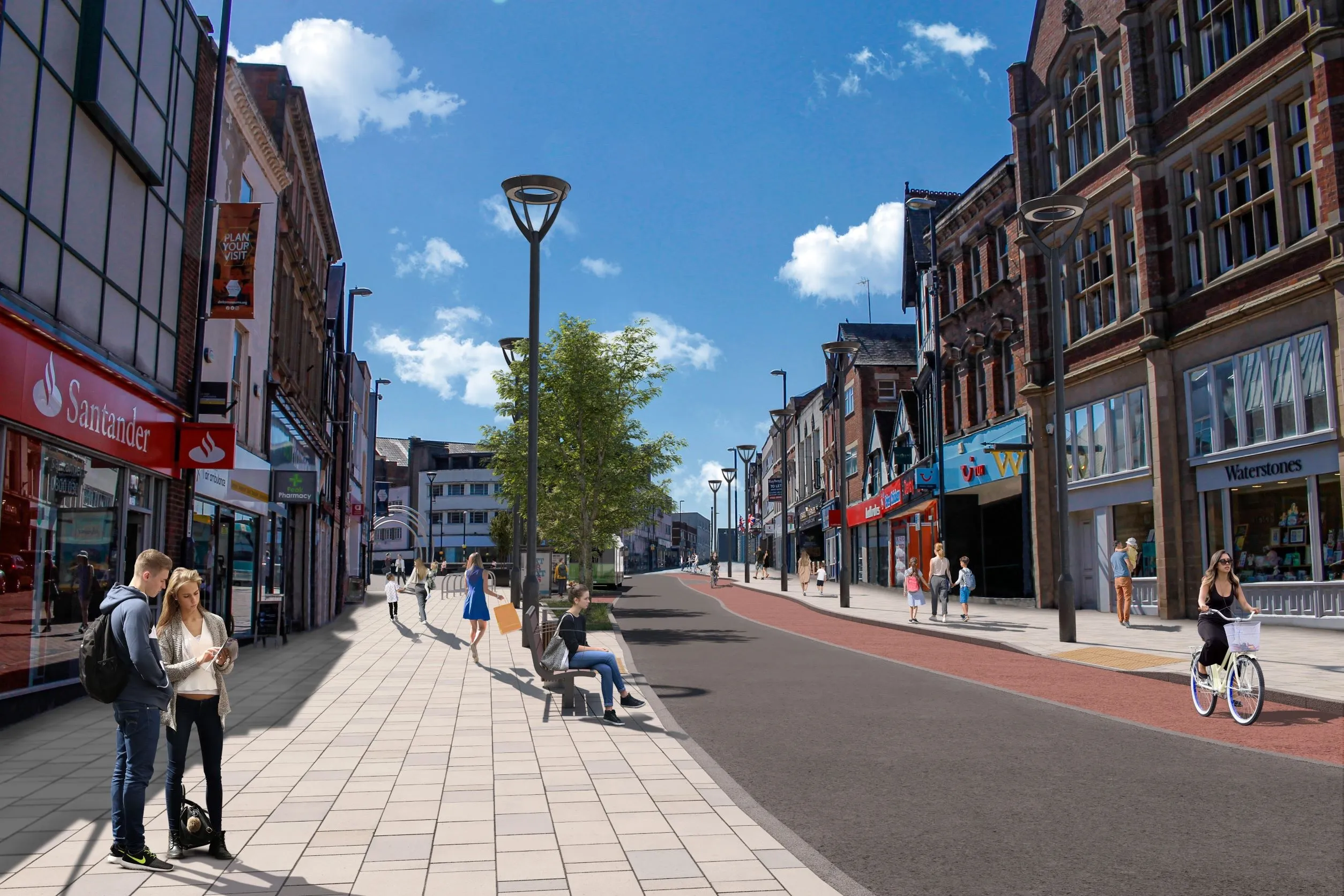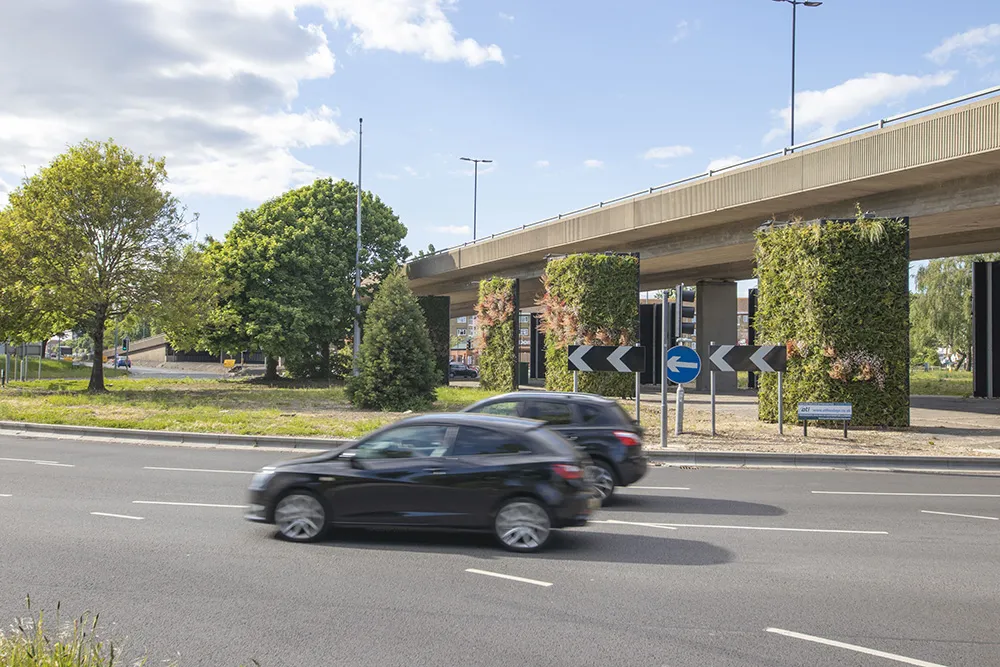
A programme to boost micromobility and active travel is using recycled material to form kerb lines, cycle tracks and channels alongside a vehicle lane and new disabled parking bays.
The redevelopment is part of the first phase of Derby Mobility Programme to deliver better transport choices for the northern English city. Work includes improving access for cyclists and pedestrians, pavements widened and resurfaced and stepped cycleways created.
Charcon Hard Landscaping, a division of Aggregate Industries, is supplying sustainable kerbs for the redevelopment of Derby city centre.
The council chose Charcon’s bespoke Black Basalt Kerb, Eco CSK Kerb and Eco CSK cycle kerbs, which replicate the look of natural granite and contains up to 65% recycled or reclaimed materials - and carries a third less of the carbon footprint, according to the manufacturer.
The products will be manufactured only 16km away from the project - meaning less transport costs and overall emissions, explained Jamie Baldwin, general manager of Charcon. “We have supplied similar schemes on a national basis, but the Black Basalt kerb is a first and very much bespoke to the project.”
The project is due to be completed by mid-June and is part of Nottingham and Derby’s Transforming Cities programme, funded by the UK’s Department of Transport.
Both authorities secured €185 million to invest in local transport infrastructure that will improve sustainable transport and encourage more low-carbon journeys.








